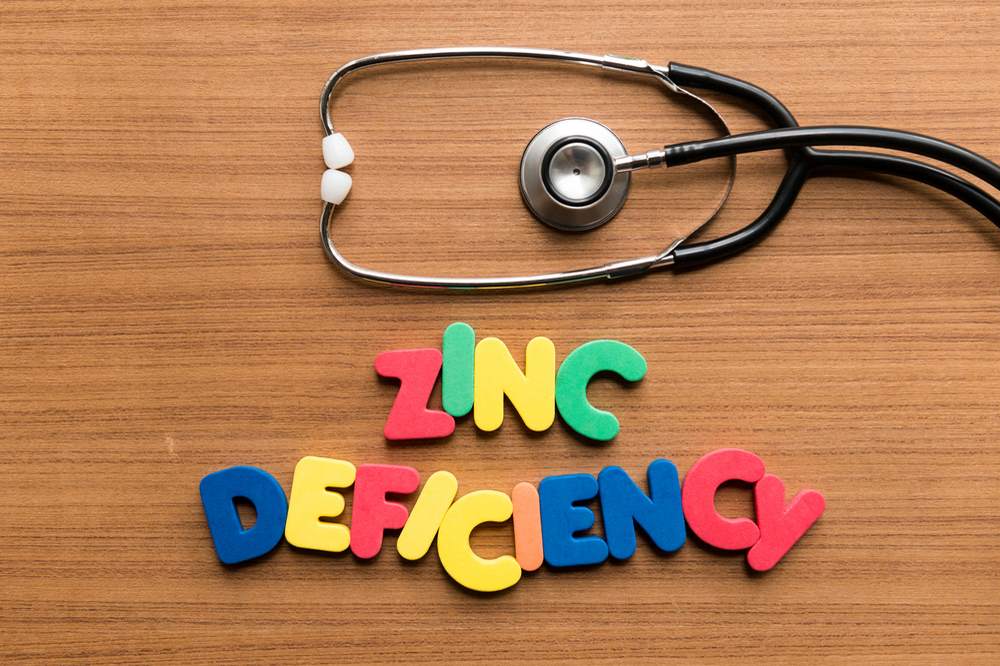Zinc Deficiency

Zinc deficiency is a rare possibility for people who are consuming a variety of foods daily but those who choose to get vegetarian might suffer from zinc deficiency. The reason behind the possibility of zinc deficiency in vegans is that the zinc coming from plant sources has less bioavailability due to the anti-nutritional substances i.e., the phytates present in vegetables, whole grains, and other plant foods. However, the notable characteristics of zinc deficiency include loss of appetite, impaired immune function, and growth retardation.
In most severe cases of zinc deficiency, it leads to delayed sexual maturation, hair loss, diarrhea, eye lesions, hypogonadism in males, impotence, and skin lesions. Some other serious health issues that arise from zinc deficiency include delayed wound healing, mental impairment, weight loss, and taste abnormalities in some individuals. Although it is very rare to develop severe zinc deficiency but it is still a possibility which might be arising either due to inadequate zinc intake or poor absorption in the gut.
Many of these zinc deficiency symptoms are non-specific and often have an association with other health disorders. Therefore, a proper medical examination and diagnosis is necessary to rule out any other possible health condition before declaring it a zinc deficiency. Although it is difficult to measure the nutritional status of zinc properly even after using laboratory tests. The reason behind is that the distribution of zinc occurs throughout the body as a component of various nucleic acids and proteins. Serum or plasma zinc levels are the most common indices in practice for the evaluation of zinc deficiency.
However, the serum or plasma zinc levels do not necessarily indicate cellular zinc levels due to the compact homeostatic control mechanisms. Clinical reflections of zinc deficiency can be visible if the abnormal laboratory indices are not present. Clinicians consider the risk factors like alcoholism, digestive diseases, and inadequate caloric intake and signs of zinc deficiency such as delayed wound healing and impaired growth in children while determining the requirement for zinc supplementation.

